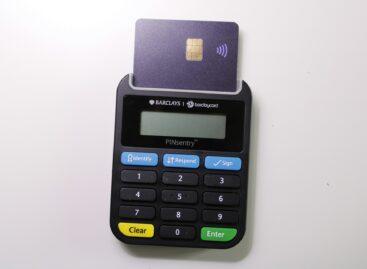Attention, rule change! From July 1, businesses will only receive e-invoices for their utilities
From July 1, 2025, a new era will begin for many thousands of businesses: from this day on, electricity and gas service providers will only be able to issue them electronic invoices. This poses a serious challenge, as invoices will need to be professionally archived. According to Balázs Ángyán, CEO of Számlázz.hu, which works with nearly one million businesses, the legal intention is forward-looking, but the practical application poses significant challenges for both the sending and receiving parties.
 From July 1, businesses will only receive e-invoices for their electricity and gas bills and their utilities – it will be their responsibility to receive them and preserve them in an official form for years, that is, to archive the documents. It is important to note that the obligation does not extend to retail customers. The rule change applies to sole proprietors if they have concluded a contract with the service provider as an entrepreneur.
From July 1, businesses will only receive e-invoices for their electricity and gas bills and their utilities – it will be their responsibility to receive them and preserve them in an official form for years, that is, to archive the documents. It is important to note that the obligation does not extend to retail customers. The rule change applies to sole proprietors if they have concluded a contract with the service provider as an entrepreneur.
Printing, saving to a computer and collecting by e-mail is not a smart idea
Warning: it is not appropriate to print everything out and put it in a folder – the preservation of receipts must be ensured electronically. It is also not a good solution to entrust invoices to a system that was not invented for this purpose. It is necessary to avoid storing them in an e-mail account for the long term or simply saving the documents to the computer. Many people use cloud services for archiving, but these do not guarantee adequate protection against deletion or data loss.
It is the entrepreneur’s responsibility to ensure that the document is not destroyed
You must ensure that the e-invoice can be read years later, the authenticity of the origin is important, as well as the integrity of the content. Therefore, the documents must be stored in a place where they are safe. This can be a reliable, cloud-based archiving service provider designed for this purpose, or even a well-structured, own IT system. The latter is only viable for larger companies.
“The changes may seem daunting to many small businesses, but there is no reason to worry. The intention is forward-looking, but the practical application poses significant challenges for both the invoice sender and the invoice recipient. We work with a million businesses and have a system that is able to archive all outgoing and incoming invoices in an official format. In the event of a NAV audit, the tax authority accepts the Számlázz.hu format as authentic. With this solution, we aim to help Hungarian businesses with easier and faster administration,”
– said Balázs Ángyán, CEO of Számlázz.hu.
Related news
Record at Számlázz.hu: 125 million invoices and receipts generated in one year
🎧 Hallgasd a cikket: Lejátszás Szünet Folytatás Leállítás Nyelv: Auto…
Read more >New programme to support the digitalisation of Hungarian businesses
🎧 Hallgasd a cikket: Lejátszás Szünet Folytatás Leállítás Nyelv: Auto…
Read more >Related news
Nestlé to sell remaining ice-cream assets but commits to Froneri venture
🎧 Hallgasd a cikket: Lejátszás Szünet Folytatás Leállítás Nyelv: Auto…
Read more >40 secure jobs, sustainable solutions – new BURGER KING® in Csepel
🎧 Hallgasd a cikket: Lejátszás Szünet Folytatás Leállítás Nyelv: Auto…
Read more >








